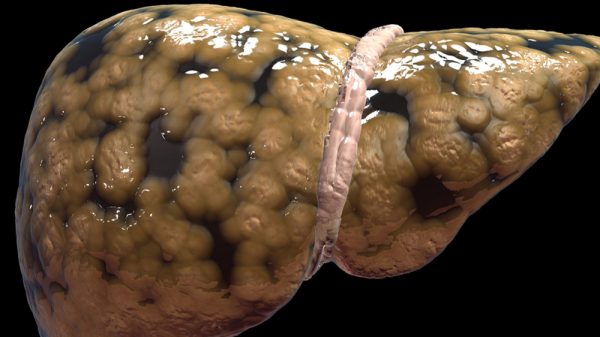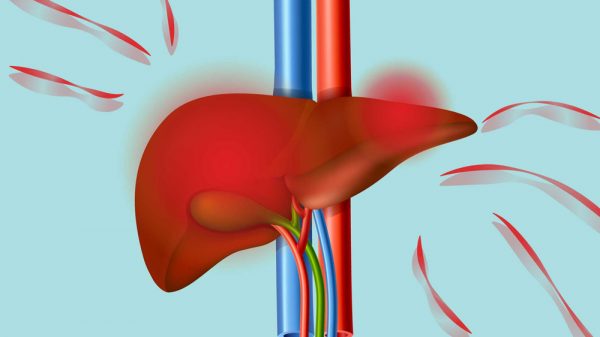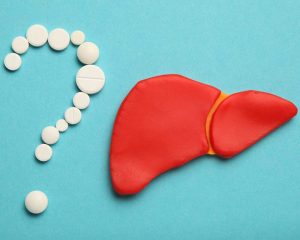Ascites is a medical condition where fluid gathers together in the abdomen and accumulates there. The fluid is usually lodged in a cavity called the peritoneum. The peritoneum is a smooth sac-like structure that contains some of your internal organs. On a normal day, there is a little quantity of fluid in your peritoneal cavity. And this quantity fluctuates in women, alongside their monthly cycle. However, if at any time, the fluid becomes more than 25 mL, it is ascitic. In other words, you have ascites. Ascites can happen due to many different reasons. In this article, we will talk about what causes ascites. We will also talk about how it can be cured.
One thing that you must quickly realize is that ascites more of a symptom. It is never a stand-alone health condition. It never occurs without an underlying cause. Meanwhile, it is a life-threatening condition. About half of the people with ascites would die from its complications within 2 years. Some of the signs of ascites include a swollen belly and weight gain, among many other symptoms that may arise due to complications. The outlook and prognosis of ascites largely depend on what caused it in the first place. That is why doctors do not stop at detecting ascites. They go on to investigate further until they find out the underlying cause.
What Causes Ascites?
The root causes of ascites are usually serious illnesses that can reduce life expectancy significantly. So it is always a cause for alarm. If you have ascites, you should not take it lightly.
The first step you should take if suspect that you may have ascites is to immediately visit your doctor. He will examine your belly. The shape of your abdomen while you are standing up and while you are lying down would indicate ascites.
The doctor does not just stop at confirming that there is indeed excess fluid in your peritoneal cavity. He or she will go ahead with relevant medical investigations to detect the root cause.
Some of the tests that your doctor may order include:
- Blood tests to assess your kidney and liver functions. These will either confirm or rule out cirrhosis as the cause. If there are signs of cirrhosis, your doctor will request further tests to find out the cause of cirrhosis. Possible causes of cirrhosis include hepatitis B and C.
- Analysis of the ascitic fluid sample. They would draw out a sample of the ascitic fluid with a needle. They would then send the sample to the lab for evaluation. This test may show the presence of cancer cells or confirm an infection.
- Abdominal ultrasound. This test would also help identify the presence of cancer. It could either be cancer that originates from the liver or cancer that spread from another organ to the liver.
So then, the common causes of ascites are as follows:
- Liver cirrhosis
- Kidney disease
- Some forms of cancer
- Infection
Other causes include:
- Heart failure
- Tuberculosis
- Pancreatitis
- Hypothyroidism
The forms of cancer that may cause ascites are those that affect the following areas of the body:
- Liver
- Peritoneum
- Lymphatic system
- Lungs
- Womb
- Ovaries
- Stomach
- Breast
- Bowels
- Pancreas
How to Cure Ascites
The only way to cure ascites is to cure the root cause. If the condition that caused ascites is still there, even if you drain the fluid, it will still recur.
For instance, if the root cause of your ascites is cirrhosis, you should treat the condition. You should also make lifestyle and dietary choices that would help manage the condition. One such change is limiting salt intake.
Doctors usually recommend diuretic (water tablets) for people who have ascites due to cirrhosis. The tablets would make you pass urine more frequently. As you pass out more fluid through your urine, there will be no excess fluid to retain and build up in your peritoneum.
Diuretics are very effective in most cases. But then, there are a few cases where ascites do not respond to diuretics. If the case becomes severe, the last resort may be to enlist for a liver transplant.
Other treatment options for ascites are as follows:
Paracentesis
If the excess fluid on your peritoneum is so much, your doctor may recommend this option. They will drain the excess fluid with the help of a needle. This can help to effectively manage ascites, but it does not cure it.
This procedure can help relieve pressure in your abdomen, as well as discomfort. Doctors may drain as much as 5-10 liters of ascitic fluid in some cases. Can you imagine and much discomfort and abdominal pressure that would relieve?
Chemotherapy
This is a treatment option for malignant ascites. Malignant ascites is an ascites caused by cancer. If cancer is the cause of your ascites, then chemotherapy would help to control or shrink the cancer cells.
The doctor may need to insert a tube into your abdomen to administer this treatment. Sometimes, chemotherapy can stop the building up of fluid. However, we need more evidence to back this claim.
Shunts
Doctors sometimes opt to use a tube (or shunt) to divert the fluid in your abdomen into your bloodstream. The shunt would form a connection between your neck and abdominal cavity. It would connect your peritoneum to a vein in your neck. The fluid would pass through the tube into that vein to enter your bloodstream.
What Is the Outlook of Ascites?
The outlook and prognosis ascites would depend on what the root cause is. You may be able to manage and reduce symptoms, but treating the root condition is the only way to cure ascites. Treating the root cause would also determine the outcome.
What causes ascites the most are liver conditions such as cirrhosis. Cirrhosis has no cure as of now. However, shunts and paracentesis can help manage the condition. But at the end of the day, you may need a transplant.
























